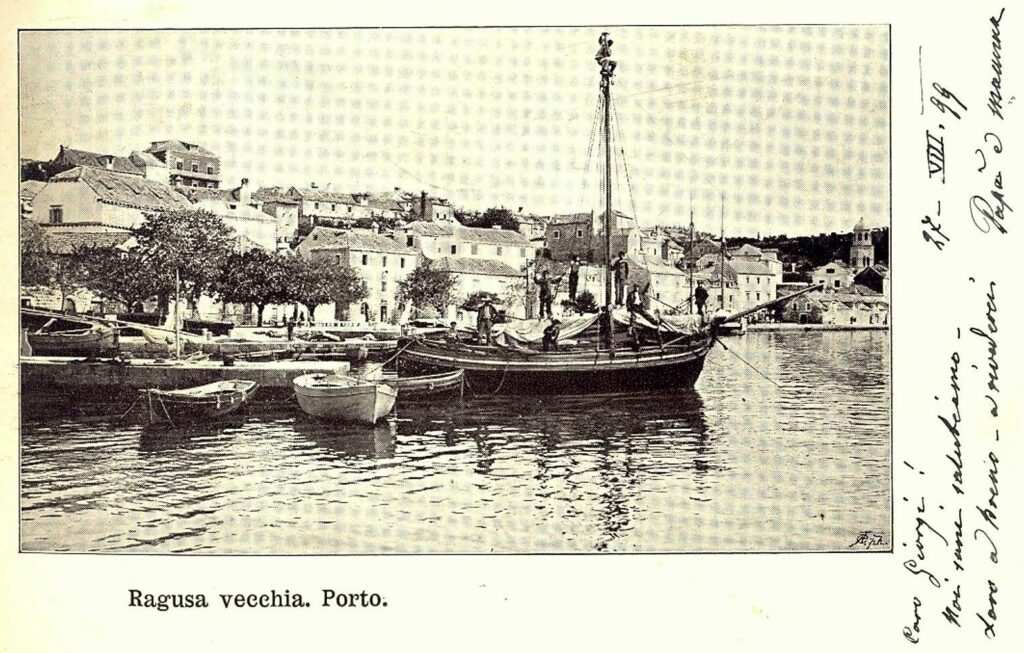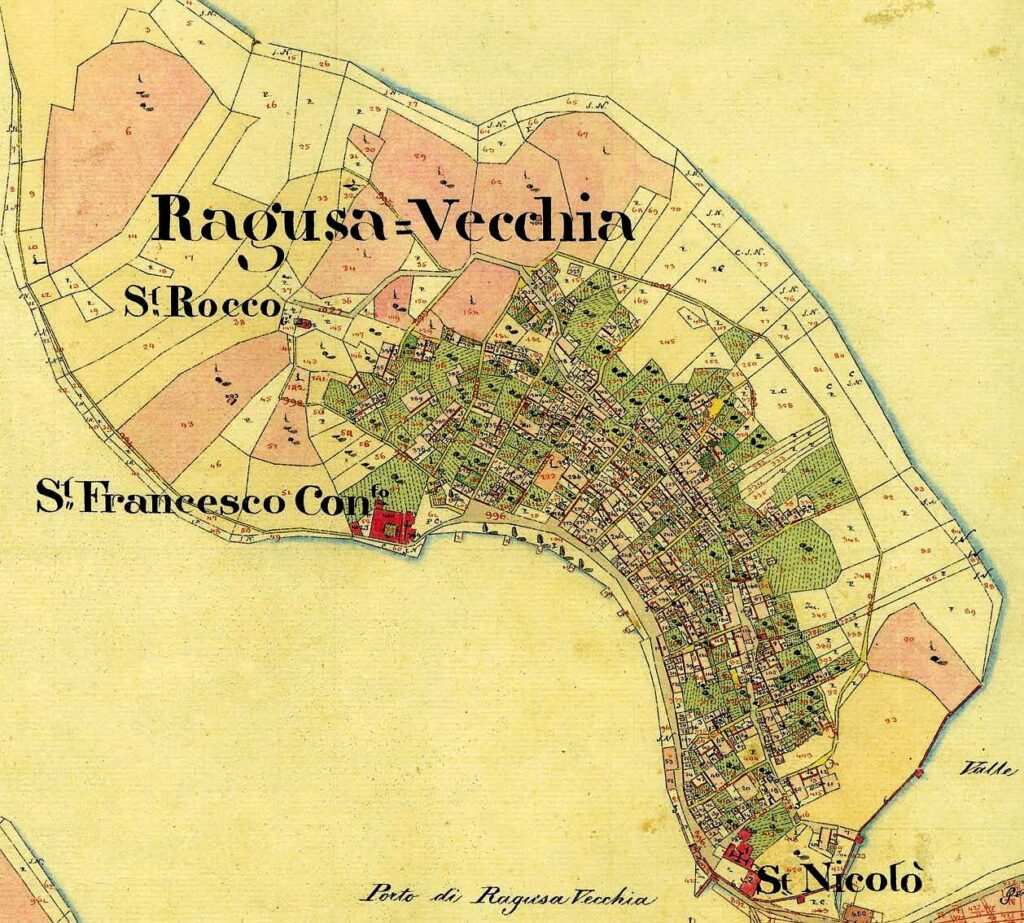When one thinks about cities, towns and villages, their history and urban characteristics, a lot can be discovered from their names. Toponymy and cartography, as well as different names for the same settlement in different historical sources, can reveal a lot of interesting information. Some settlements have preserved their names of old to this day, and some have changed them throughout history. Cavtat is among the latter, since a pause in urban continuity led to the substitution of its ancient or Illyrian toponym with a new one, which still has a connection to the older settlement, but is also of pre-Slavic origin.
The name of today’s Cavtat comes from the Latin word civitas. Even today, it is common for the inhabitants of a city not to use its proper name in written or spoken contexts, instead referring to it simply as grad (the city), with the name of the city in question being implied. This is a common practice among the citizens of cities such as Split and, of course, Dubrovnik. In ancient times, the term civitas was used to refer to every urban settlement with its own local government whose legal and administrative authority extended to the surrounding area. It is probable that the inhabitants of Epidaurum, the city which stood on the site of Cavtat, simply referred to their city as civitas.
Over time, various stories concerning the origin of Cavtat’s contemporary name began to emerge, composed of various historical fragments and spiced with a few fantastic details. Such stories were mostly transmitted orally, although there are some literary sources. One such story is about the beautiful Captislava, after whom, as Junije Palmotić writes in one of his plays, Cavtat was named. Maja Bošković Stulli recorded another interesting story in Cavtat in the 1950s:
`The inhabitants of the destroyed Epidaurum fled to the hills, and one man among them looked down and saw brambles, black locust trees and some mountain flowers blooming in the ruins. And he said, “Gledaj kako cavti!” (“Look at the way it’s blooming!”) And thus the town was named Cavtat.‘
Ragussa Vecchia, the Italian name for Cavtat, is an onomastic connection with Dubrovnik. From the Middle Ages until the 19th century, several variations of the aforementioned name were recorded: Civitas antiqua, Urbs vetus, Civitas vetus, Città Vecchia and others, all of which indicate not only close ties between Cavtat and Dubrovnik, but also their historical and identity sequence. Dubrovnik humanists would often alternate between names Epidaurus and Ragusium to such extent that the writer Palladio Fusco (1450-1520) had to emphasize the distinction between the two settlements in his work Description of the Illyrian Coast:
`Around 40 stadia (7.4 kilometres) away from Dubrovnik lie the remains of the colony of Epidaurum. It is therefore necessary to immediately correct the error of many who say that the former Epidaurum is now called Dubrovnik. The distance between the two settlements, as previously mentioned, measured 40 stages of distance.‘
This brings us back to the starting point – Epidaurum – whose name may lead one to an incorrect conclusion, as it has done for many researchers before, that the settlement in question is a Greek colony. There are two famous cities named Epidaurum in Greece – the one in Argolis, famous for its sanctuary of Asclepius (Aesculapius), and the other in Laconia. The shared name led the English archaeologist Arthur Evans to assume that the two aforementioned cities are the antecedents of our Epidaurum. However, the facts say otherwise, so there is no material evidence to support this generally accepted thesis. The name Epidaurum first appears in a written source in 48 BCE. Furthermore, the same name can be found again in the 1st century CE in Naturalis Historia, an important work by Pliny the Elder. The name can also be found on several epigraphic monuments, as well as on the Tabula Peutingeriana, a copy of an ancient Roman road map, where the Epidaurum appears under the name of Epitaur.
Some researchers, such as Anton Mayer, the author of the book Die Sprache der alten Illyrier and whose idea was promoted in Croatian historiography by Grga Novak, believe that the prefix epi- is of Illyrian origin, as is the case with names such as Epicadus and Epidamnos. In accordance with that idea, epi would mean “behind”, while deuro or dauro would mean “forest”.
Certainly, the ancient city is a successor to an earlier Iron Age, and possibly Bronze Age settlement. Conversations about the origin of the name can go in that order and vice versa.

